At a Zurich Film Festival masterclass, the mogul also confirms plans to direct Mila 18 “sooner rather than later.”
Harvey Weinstein, speaking at a Masterclass at the Zurich Film Festival, said that this year’s Oscars race is “the most competitive season I’ve ever seen.”
He was responding to a question from the audience about Olivier Dahan’s Grace of Monaco starring Nicole Kidman being moved back from November 2013 to spring 2014. Weinstein said this was simply a case of the film not being ready. “The only reason is because it just wasn’t ready…The score wasn’t ready, a lot of things weren’t ready…Also we’ve played no festivals on that movie, so it’s hard to get into an Oscar race without at least some festival exposure. The movie is going to be fantastic, and very glamorous. I think this could be bigger than My Week With Marilyn and in the same category of classy, intelligent filmmaking,” he explained.
The maestro of awards season, whose films have racked up 321 Oscar nominations and 78 wins over the years at Miramax and now The Weinstein Company, has a slew of hot titles himself for this year’s race, including August: Osage County, Philomena, Fruitvale Station, Mandela: Long Walk To Freedom and Lee Daniels’ The Butler. He graciously, excitedly also praised competitors’ films such as Steve McQueen’s 12 Years A Slave and Denis Villeneuve’s Prisoners.
Here in Zurich, the Weinstein Company is screening crowdpleasing Paul Potts story One Chance by David Frankel, Toronto acquisition The Railway Man by Jonathan Teplitzky (which will be released in 2014, and marks Weinstein’s 10th film with Colin Firth), and Ryan Coogler’s Sundance hit Fruitvale Station.
That was just some of the discussion at Weinstein’s public talk in Zurich, which showed the mogul to be smart, gracious and charming. His sense of humour also came through loud and clear, with the audience of several hundred people bursting out into laughter regularly throughout his relaxed chat.
The world of books
Weinstein’s passion for films was evident, even though he joked that the first film he ever saw – 1959’s Hercules Unchained “did not inspire me.” His first emotional connection to film came when watching Old Yeller, the classic American tearjerker about a boy and his dog. “The idea of Gregory Peck having to shoot the dog, I saw the emotionality of that. And I questioned that decision with my dad,” he recalled.
He poignantly recounted how his love for storytelling was born when he had an eye injury as a young boy, and had to stay home from school. A next-door neighbour librarian introduced him “to the world of books,” he remembered. Works by great American authors as well as by Tolstoy and Chekhov “fired up my imagination,” he noted. “I think the way you can tell stories today is that you can write them of course or you can make movies. And I chose the latter path.”
“I like stories about outsiders, I felt like one when I was a kid,” he said. He added that he liked films that were “educational without being medicine.”
Directing plans and career highlights
The distribution executive and seasoned producer also today confirmed his long-gestating plans to direct. His says he is definitely moving ahead with Mila 18, an ambitious adaptation of Leon Uris’ novel about the ghetto uprising in WWII Warsaw in which a small group of Jews held off Nazi forces for 42 days using only handmade weapons. “We will make that movie, sooner rather than later,” he added. Weinstein joked about his “Harvey Scissorhands” reputation – “I have so many directors that want to produce that movie, Martin Scorsese said he’d do it but cut the three hours and make it a 10-minute short,” Weinstein said with a smile.
Weinstein paid tribute to his younger brother Bob, “My brother doesn’t get enough credit. He was the person who fought for Sex, Lies, and Videotape and he fought for Reservoir Dogs, and of course both of those led to major relationships with Steven Soderbergh and Quentin Tarantino.” Bob Weinstein was also the one to bring in the Scream franchise.
Of some of his career triumphs, Weinstein remembered the difficult road to making 1998’s Shakespeare in Love. “The obstacles were incredible,” he said. He remembered at the time that Universal was getting ready to shoot the film, with sets already built and a cast of Daniel Day-Lewis and Julia Roberts. They asked for $9m to recover their costs in return for Miramax getting the film rights. He ended up writing a cheque for $4.5m to Universal. “It was the craziest decision I’ve ever made…we didn’t even have the money…it was in the early days of Disney [under Joe Roth], and they backed us because they felt our passion for making this movie and us believing in it the way we did.”
Weinstein took the opportunity in Zurich to set the record straight about accepting the Best Picture Oscar for Shakespeare In Love. Five producers were credited on the film, including director Edward Zwick and writer Marc Norman who had been working on Universal’s version – Weinstein was advised to credit them as producers to sweeten the deal to get the project over to Miramax. Neither Zwick nor Norman ever came to the set, and in fact Zwick was making another film at the time and tried to lure Gwyneth Paltrow away from Shakespeare in Love. “These two guys certainly accepted an Oscar, they have no false modesty. They felt they developed it early and that entitled them to an Oscar. So I made the speech after Donna Gigliotti who did produce the movie, and David Parfitt who did produce the movie. I did produce the movie, because I took a leave of absence from my company when I did produce the movie. I accepted the award and then people said, ‘Oh look at him stealing somebody’s thunder.’” He’s not taken on a speech for a film like Chicago because of that. “I take that Oscar seriously…I wanted to correct the story here. A great thing happened, the Producers Guild now measures who produces a movie. That’s a great thing for our industry.”
Weinstein said The Reader was another project that meant a lot to him personally. He read Bernhard Schlink’s novel one night while babysitting his young daughter, and he told acquisitions executive Jason Blum, working for Weinstein at the time, to get on the first flight to Europe to meet with Schlink. “I said ‘You’re going tonight. Buy The Reader, go and see him. ‘And I said ‘Jason, one other thing, If you don’t get it, don’t come back.’ And I said tell Bernard Schlink I said that…I knew that Schlink would laugh.”
Despite its difficult subject matter about a German woman’s role in the Holocaust, the film grossed $120m worldwide and won Kate Winslet the Oscar. “This movie revved me up because I loved it for so many years,” Weinstein remembered. “It revived my faith in movies. For me it was the most important movie that The Weinstein Company made at that moment. That a film of that subject matter could be so successful.”
On Tarantino and The Artist
Of his long-term, close working relationship with Tarantino, he said: “Quentin is a genius. There is no greater filmmaker in my opinion than Quentin. He’s the most original voice in my time in the movies. I love him like a little brother. Working with him is remarkable.”
He also defended allowing a censored version of Tarantino’s Django Unchained to be released in China. “We had to take out two minutes of the movie, and Quentin wasn’t happy about that…but I think it’s so important that young Chinese audience see the movie. Let China see these films, those kids will get freer and more educated. Those kids will be inspired to do things and we don’t have Cold Wars.”
With The Artist, he remembers when Wild Bunch’s Vincent Maraval showed it to him in Paris, he immediately knew how the film could take off – not an easy prediction given that it was a French dialogue-free film shot in black-and-white. “It blew me away, I felt in that room that the film was going to win Best Picture. I told them then we’d at least get nominated but I felt even stronger.” In today’s media-saturated world of mobile phones and Twitter, he said, “this to me was take everything away, and surrender. This is something completely different. I felt that people would embrace the experience.” He pointed to the fact that The Weinstein Company’s launch of the film in the US came after a lacklustre French launch of the picture. “We had our own marketing campaign, and then we told them to re-release it in France, and it did really well.”
He paid tribute to TWC’s staff in their work on campaigns. “We’re imaginative. We don’t want to run the same boring ads with somebody’s face from the movie, again and again and again and again. We ran just as many ads with the dog [Uggie] as with Jean Dujardin. There were sometimes I thought the dog was better looking than Jean Dujardin,” he added with a laugh.
Encouraging local talents
In German-speaking Zurich, Weinstein paid tribute to German-speaking talents such as Christoph Waltz, Daniel Bruhl, Til Schwiger (“nobody is more fun”) and Tom Schilling in TWC’s forthcoming Suite Francaise (which he says will be a “a cousin to The English Patient”). “There’s a wave of actors who crisscross from Germany to everywhere, to England, to America. The next generation is in good shape. Christoph did a lot of pioneer work.”
Weinstein also won over the Swiss audience by recounting how he beat the odds for Swiss film Journey of Hope to beat Cyrano de Bergerac to win the foreign-language Oscar in 1991. “None of you guys sent me candy, none of you sent me invitations to come here. Nobody said I could get a Swiss Army Knife watch,” he said to much laughter and applause. “When My Left Foot won, we closed every pub in Dublin.”
He ended the 45-minute-plus talk by giving some advice to budding filmmakers in the audience. “If you think you have to buy the number one bestseller, don’t. You don’t have to. Go back in time, find a book that was written in 1940 that is great. Bernhard Schlink’s detective novels are damn good and most of them haven’t been made, somebody with a vision could do those. Easier than that is that Jane Austen is in the public domain, anybody can make Emma. We made it but maybe you can make it again, make it better…Chekhov short stories, Tolstoy novels, they are there waiting for you. Get great material, the writing is so important.”



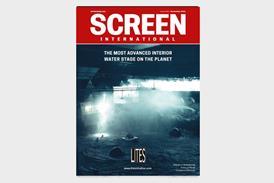
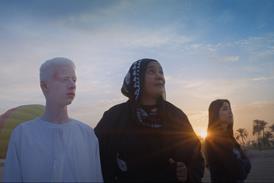
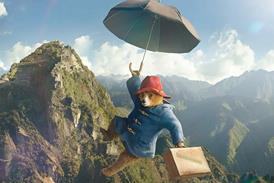
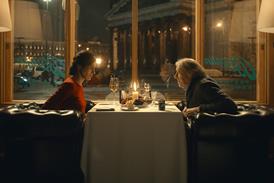
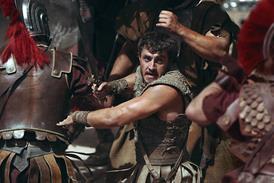




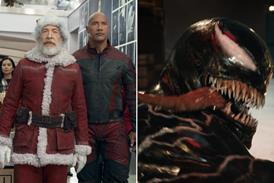
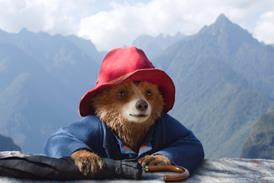
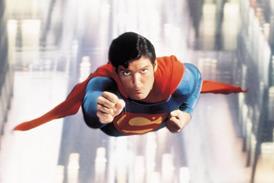
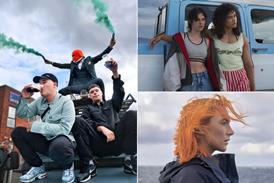
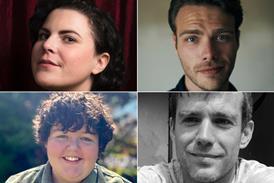







2 Readers' comments